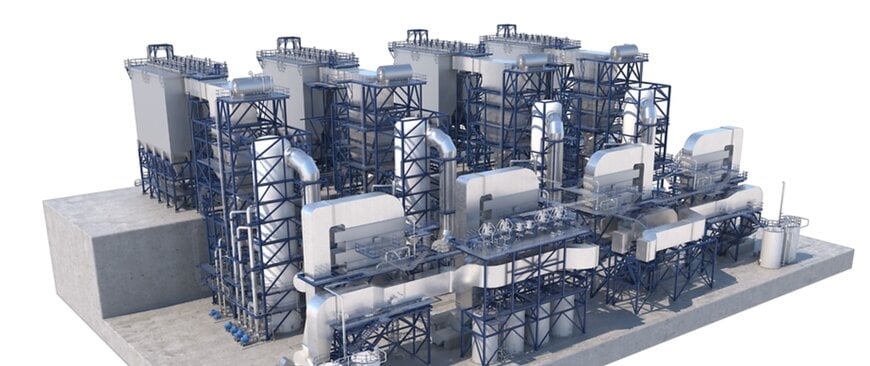www.industryemea.com
15
'25
Written on Modified on
RBB, Germany, orders sewage sludge mono-incineration plant from ANDRITZ
Designed for a capacity of 36,000 tons of dry matter per year, the highly efficient plant will thermally treat sewage sludge from more than 70 municipalities and associations across Baden-Württemberg.
www.andritz.com

RBB KSVA Vermögensgesellschaft mbH & Co. KG (RBB) has selected international technology group ANDRITZ to build a cutting-edge sewage sludge mono-incineration plant at the Böblingen waste incineration site in Germany.
With this new plant, RBB is laying the foundation for a more sustainable and environmentally friendly approach to sewage sludge treatment that supplies energy and enables the recovery of valuable phosphorus. The integration of a flue gas condensation system combined with heat pumps will significantly increase the plant’s overall energy efficiency.
ANDRITZ will supply equipment for sewage sludge reception, conveying, drying (including vapor condensation and condensate treatment), and incineration with an adiabatic EcoFluid bubbling fluidized bed (BFB) boiler system. The scope also includes a multi-stage flue gas cleaning system, heat pumps, a steam turbine with generator, the water-steam cycle, and various auxiliary systems.
Designed for a capacity of 36,000 tons of dry matter per year, the highly efficient plant will thermally treat sewage sludge from more than 70 municipalities and associations across Baden-Württemberg. This ensures resource-efficient and environmentally friendly disposal in line with the German Sewage Sludge Ordinance (AbfKlärV), which requires the recovery of phosphorus from sludge starting in 2029.
Phosphorus is a valuable, but limited resource and an essential component of fertilizers in agriculture. Mono-incineration of sewage sludge produces ash from which phosphorus can be recovered and recycled for fertilizer production. This supports the circular economy while preventing soil contamination from pollutants contained in sewage sludge. The steam generated by the incineration process will be used to produce electricity for the public grid. In addition, the combination of flue gas condensation and heat pump technology will supply heat to the local district heating network.
www.andritz.com

